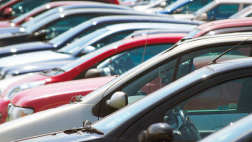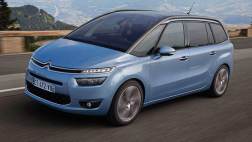So which carmaker is the world's cleanest? Not sure? Well, an independent survey released last week has found that BMW has most improved its average fuel efficiency and CO2 emission rate. Indeed, it's done so to an extent which will embarrass other carmakers.
The study, began from 1990-2005 by Environmental Defense, a US-based non-profit environmental advocacy group, which shows BMW has improved fuel economy by 14 per cent and carbon emissions by 12.3 per cent.
The next best reduction was Toyota's 3 per cent. The C02 performance of every other leading carmaker deteriorated.
BMW has made much of the fact that the report covers a period when its US sales increased fourfold.
The Americans, of course, buy more big X5 SUVs than the rest of the world combined. The report, Automakers' Corporate Carbon Burdens, studied the impact of 12 major carmakers' product strategies on fuel efficiency and overall automotive carbon emissions.
BMW improved fuel economy on several key models, including the 3 Series, 5 Series, 7Series, Z4 M Coupe, M5 Sedan and X5 SUV. Of course, the group's Mini Cooper accounted for almost half of BMW's overall fuel economy improvements.
BMW Australia spokesman Toni Andreevski says the group has made further substantial improvements to fuel consumption and emissions since the end of the survey period.
“Already in 2007, one-third of new BMWs sold in Europe have a CO2 rating of no more than 140g per kilometre,” he says. “Basically it is a great result that shows that we can continue to optimise current engines. It also shows petrol and diesel engines that outperform existing hybrid technology at comparable costs.”
With its latest diesel and lean-burn direct-injection petrol engines, (the latter is no good for Australia because of the high sulphur content of our petrol) BMW has taken its own hybrid direction. This week at the Frankfurt motor show, it showcased its new dual-mode hybrid that returns a claimed 20 per cent economy improvement on the highway and in town.
BMW's other more vaunted green gambit is the Hydrogen 7, the first hydrogen-powered luxury sedan. Driven in Germany last year by carsguide, the Hydrogen 7 emits primarily vapour when running on a non-petrol engine.
Toyota rated second best, reducing CO2 3 per cent overall, a result in part due to its introduction of the Prius hybrid, but mainly to improvements made to the best-selling Corolla.
The report also rated the overall 'carbon burden' that carmakers placed on the environment, derived from factors including vehicle emissions and the number sold. GM came out on top, with a 6.5per cent reduction in overall carbon burden, though its carbon emissions rose by 3 per cent. Toyota, while low in CO2, grew its carbon burden by 125 per cent because of an increase in overall sales.
Snapshot: Carbon savings
BMW: reduced 12.3 per cent
Toyota: reduced 3 per cent
Volkswagen: up 1.3 per cent
Subaru: up 1.6 per cent
General Motors: up 3per cent
Mitsubishi: up 4 per cent
Honda: up 4.4 per cent
Ford: up 4.7 per cent
DaimlerChrysler: up 4.8 per cent
Nissan: up 9.2 per cent
Hyundai: up 17 per cent
Kia: up 30 per cent
Source: US Environmental Defense group








.jpg)
.jpg)
.jpg)
.jpg)



.jpg)






.jpg)
.jpg)

.jpg)




.jpg)
Comments